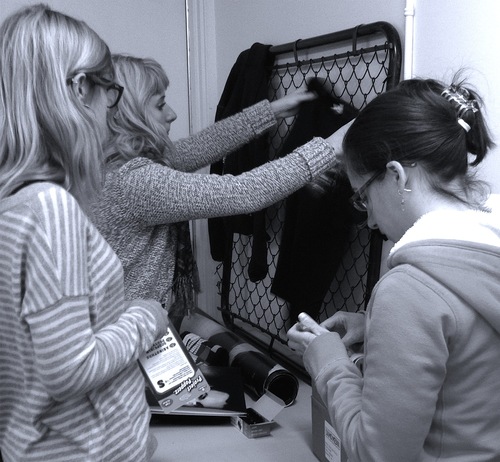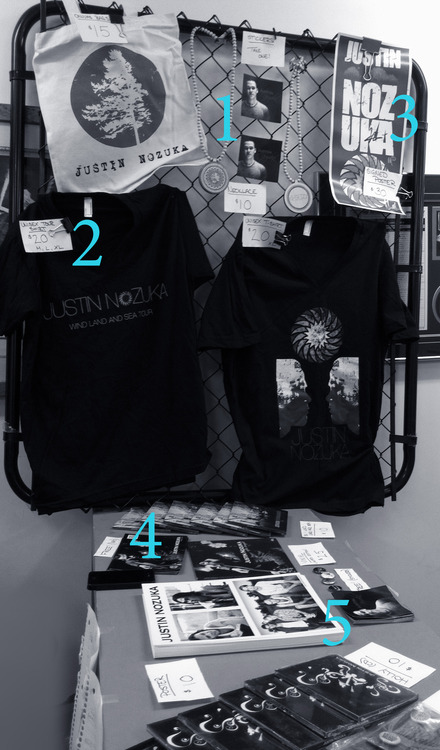 June 8, 2010
June 8, 2010 The Musician's Guide To The 360 Record Deal
For past few years, there has been quite a bit of talk of the ‘360 deal’ and how it is becoming the new trend throughout the music industry, as major record labels attempt to rewrite the way they do business. Some see it as signing a pact with the devil, and others see it as a way to establish the kind of powerful and influential brand that otherwise may have been impossible to attain with out the help of a label. While there are clear cases for either side of the argument, it is important to understand what a 360 deal is, and how it can both positively and negatively effect your career path.
What Is A 360 Deal?
Simply put, a 360 deal is a business relationship between an artist and a music industry company. It doesn’t have to be between record label and artist, as seen in the 2007 360 deal signed between Madonna and promoter Live Nation (Jay-Z signed a similar deal in 2008).
In the terms of a 360 deal (also known as a Multiple Rights Deal), the music industry company provides financial support to the artist, including direct advances and funds for things like marketing, touring and merchandising. However, in return the artist must agree to give the company a percentage of everything they are involved with, including revenue from album/ track sales, ticket sales, merchandising, and even any books the artist writes or movies the artist appears in are considered fair game under the terms of a 360 deal.
How Labels Justify The 360 Deal:
Why This Is Good For An Artist:
- Gives the company the incentive to establish a long-term and prosperous relationship with the artist
The past trend within the music industry has been to advance the artist enough money to make one album (this is partly responsible for the one-hit wonder phenomenon). Companies were looking to make a quick buck, and only needed one strong single to sell an entire album. However, with the introduction of online music stores such as iTunes and Amazon where you can purchase everything from a single track to an entire album, this model is no longer a viable way of doing business. The label is now on the look out for recording artists who have talent, artists who can create a catalog of strong albums that fans will want to purchase.
- Creates new opportunities for tour-heavy acts
This is particularly important for the jamband community, who characteristically lack strong album sales but make up for it with some of the strongest ticket sales and lengthiest tours in the biz. While album sales have been in decline, it is the live-performance sector of the music industry that will soon begin to appear as the strongest revenue stream.
According to eMarketer, the Worldwide Recorded Music Revenues (which includes revenues from sales of physical recordings and digital music services (online and mobile)) are declining as follows:


Where as the Worldwide Live Music / Concert Revenues (which includes concert tickets sales, tour merchandise, music event sponsorships and other forms of concert-related revenues) are growing as follows:


Now that companies stand to make a lot of (or a lot more) money from artists who have found success in a live setting, they will be investing much more in the live performance side of an artist/band.
Here is an excerpt from the NYTimes article The New Deal: Band as Brand quoting Craig Kallman, chairman of Atlantic Records:
“We used to look at jam bands as bands that absolutely we shouldn’t sign,” Mr. Kallman said. “Now all of a sudden I’m saying: ‘Guys, you absolutely must find the next hottest jam band. I need the next Phish. Urgently.’”- Less pressure to create forced albums
When record sales were the only way the label made money, their mission was to sign an already established artist with proven sales figures to a contract binding the artist to create a specific amount of albums. You don’t have to be a genius to understand that while many songwriters/ musicians are capable of producing enough music to fulfill the amount of albums required of them by the contract, forcing deadlines for albums will do nothing but stifle the creative process. True artists need to be able to nurture their own creative strengths in order to produce the kind of value through their music that made them successful in the first place.
With music industry companies now dipping into additional revenue streams like that from ticket sales, there will be less pressure for the artist to create their next album, especially for artists known to tour throughout much of the year.
Why This Is Bad For An Artist:
Though the company is now pursuing a long-term relationship with the artist, each short-term revenue stream will equate to significantly less money for the artist. Here is an except from an article written by entertainment lawyer Bob Donnelly that appeared on Billboard.biz:
“The 360 deals that I’ve reviewed require the artist to relinquish between 5% and 50% of revenues from sources other than record sales. To illustrate this point, let’s use 20% as the percentage that the record company is seeking from an artist’s live touring income. If that artist is paying all of the traditional touring costs (e.g. hotels, transportation, etc.) as well as paying her manager a 20% commission, her booking agent a 15% commission, and her lawyer and business manager 5% each, then that could result in a record company receiving half of every net touring dollar which winds up in the artist’s pocket.”
Hip-hop recordings can be expensive to produce and very few hip-hop artists find success in touring. Therefore, one of hip-hop’s most important revenue stream’s is the endorsement revenue, which has always been due solely to the artist, but is now liable to have a piece taken by the label.



- Additional ‘outside’ pressures from the music industry company
Now that the involved music industry company owns stake in the brand as a whole, they stand to make significantly more money as the artist branches further out. While it is no secret that in the past, labels have been known to apply significant pressure to artists by pushing them into making more albums (aka more money) for the label, these companies can now use this same ‘influence’ to persuade artists into making business decisions that may not reflect their own best interest.

Long before social media became a buzz word, fans of bands like The Grateful Dead, The Allman Bros., Santana, Frank Zappa, King Crimson, Phish, etc. had created an entire subculture of ‘tapers and traders’ based on the idea of sharing bootleg recordings of live performances. In most instances, there were only two rules:
- No soundboard recordings can be captured and traded (of course, most people found a way around this, but this was put in place so that artists COULD sell the performance as an official release if they were so inclined)It is this method of open taping and trading that helped bands to establish cult followings through word-of-mouth marketing (before it was called word-of-mouth marketing). However, through the terms of the 360 deal, music industry companies stand to profit off of these recordings by selling them at a premium instead of simply giving them away for free. Great for the label, but terrible for the band who has established a strong fanbase based on the ideology of giving away audience tapes of unique live performances.
- No one may charge another person for a copy of their recording.
How Much Will The Label Take?
Since the concept of a 360 deal is still a fairly recent phenomenon, these contracts can vary in terms of the percentage you will owe to label. But in order to illustrate the kind of percentages that a label or music industry company may take, here is another excerpt from the NY Times article discussing a recent 360 deal written up by Atlantic Records:
Atlantic’s document offers a conventional cash advance to sign the artist, who would receive a royalty for sales after expenses were recouped. With the release of the artist’s first album, however, the label has an option to pay an additional $200,000 in exchange for 30 percent of the net income from all touring, merchandise, endorsements and fan-club fees.
Considerations To Be Made Before Signing:
- Is the label merely participating in revenue streams from activities managed and controlled by the artist or will the label be managing and controlling the touring, merchandise or marketing activities and/or collecting the revenue from those activities and accounting to the artist.
360 Deals have music industry companies becoming involved with more aspects of an artist’s career than ever before. It is important to be sure that the company has the proper manpower and expertise to properly manage aspects like touring and merchandising, which they previously had nothing to do with.
- Make sure you understand the terms of the contract! The 360 Deal is a relatively new concept, and as such there are still multiple formats floating around:
- Which revenue streams are involved?- Bring A Lawyer. This is standard operating procedure when dealing with most contracts, but because of the complicated nature of the 360 deal contracts, and the ability for labels to find loop holes, it is especially important for a lawyer to review the terms of the contract with you so you don’t get roped into something you may have missed.
- What percentage of each stream do you owe to the label?
- What services will you be receiving in return for giving the label a piece of most, or even all of your revenue streams?
- What constitutes a breach of contract?
How do YOU feel about the 360 deal? Do you have an information that may push the argument in one direction or another?






Reader Comments (19)
A very thorough explanation, Jon. Thanks! I bookmarked this to my delicious account.
Thanks Chris! Send me your delicious account so I can follow it (Im on there as well).
That's a great article. Thank you for putting it together.. will definitely pass it on!
Thanks for the low down on the 360 deals. Even though so few are being signed these days it's on us to be informed no? Great article.
@swapmeet glad you enjoyed the article, thanks for offering to pass the article on! I really appreciate the support!
@Circe, you nailed it on the head! I am also a musician as well as a blogger and the one thing that I've also found to hinder the career advancement process of many musicians is their unwillingness or even ignorance to the need to understand the climate of the industry that surrounds them. Musicians should be treating themselves as entrepreneurs as, after all, their band name and music represents one overall thing - their brand. Without the growth of the brand, they will never be attractive to sign by a record label. It is the job of the 'career-seeking' artist to seek out the knowledge they don't already possess and to grow as a business-minded individual.
great read. I'm glad you gave both perspectives of the argument.
I'd just like to add:
Labels today are more and more becoming publishing houses for music. 360 is a quick fix, but i still a desperate attempt to hold on to the old paradigm of when music sales drove the business. Until they produce a way to maintain business without the sale of music, they will continue to struggle.
Randy Z.
www.iamrandyz.com
@randy, while I am trying to maintain as neutral a position as possible about the 360 deal, I do think it is a step in the right direction for establishing a stronger climate for their industry. You mentioned that it is 'still a desperate attempt to hold on to the old paradigm of when music sales drove the business', but I think that this is exactly the opposite. It is the labels, and keep in mind its not just labels (see Live Nation 360 deal links above), that are now branching out into businesses such as live performances, merchandising, etc. It appears (though I may be wrong) that the labels understand that album sales are NOT the way of the future and are attempting to continue strong business without pushing album sales as the sole revenue stream.
Would anyone else like to chime in on this?
I think that 360 deals are indeed the last ditch effort from an industry of middlemen.
Most of the really talented and well connected people in this industry will survive fine because musicians will continue to thrive in the next decade even when their current paycheck dispensers have gone under. The people who actually provided value will still have value to provide.
The corporations, their boards and their shareholders? Not so much. They are being fed to the gaping maw of their own Free Market Darwinism, and good riddance to cheap rubbish.
We saw this business plan play itself out already -- that led to Live Nation/Ticketmaster, which takes the corporate control model and "resource synergy" to their logical conclusion: one great big fucking Wal-Mart monopolizing every city in the country and brokering long-term 360 deals with top talent because nobody else can touch their access and leverage. Great.
The simple existence of "360 deals" is strong evidence that labels are irrelevant...and proof positive that musicians are becoming independent businesses. Successfully. Build your own team and pocket your own profits.
(...which is of course an answer to your question about opinions on the deals themselves...not a response to your article, which was excellent as usual...thank you for doing original research and real journalism...)
I would say whether or not a 360 deal is a good idea for an artist depends on:
The artist's goals
Quality of relationship artist has with the label
Terms of the deal
For example, the goals of the artist and the goals of the label must be compatible. This will come down to who is on the label staff and whether they view the artist as a commodity to be exploited or a long term capital investment (sorry to use economic terms but we are talking about investment).
If relations with the label are strained to begin with, signing a 360 deal is probably not a good idea. this would be akin to marrying someone you don't like or constantly disagree with.
It is also worth considering that the label will have spent a good deal of time analysing the terms of the deal and what they think they will make.
If I was to enter a 360 deal I would probably write my own contract based on what I want to achieve and submit it to the label rather than the other way round, as usually occurs.
Terms of the deal will be key. Is the label taking 20% of the artists share of touring income after costs or 20% of overall tour profit?
And who maintains control of different aspects? If the label decides its a good idea for your thrash metal band to rock pink hello kitty track suits and endorse cinnamon aftershave, how much control does the artist have over the decision?
@Justin, thanks for contributing in response to the question! Great to hear another educated opinion being presented. Also, thanks for the very nice complement - im flattered. I will continue to be writing articles about the music industry and music marketing with a similar style so keep a look out ;-)
@Hagop - great analogy: If relations with the label are strained to begin with, signing a 360 deal is probably not a good idea. this would be akin to marrying someone you don't like or constantly disagree with.
Couldnt agree more. From my point of view, which is a neutral, fact-based, point of view, I think there are certainly a group who could benefit from a 360 deal, though I think you nailed it with your comment. It all depends on the situation and the existing relationship between artist and company. Thanks for contributing!
Great article. I've passed this on to more than a few friends. I would love to actually see a sample copy of a 360 contract though.
@Universal Indie Records, Thanks for reading and passing the article on! Appreciate the support.
Here is an example of a 360 deal that was created by Bruce Warila, one of the co-founders of Music Think Tank: http://www.musicthinktank.com/blog/download-music-business-legal-documents-for-creating-your-ow.html
Hope that helps!
Thanks a lot John. I've been searching for one forever.. lol.
My pleasure! Thanks Bruce, he is the one who was gracious enough to post up his documents here on MTT. :-)
Believe it or not the Spice Girls had a very good model. They had a company and they were all stakeholders in it. They then handled everything inhouse including management, concert promotions etc. Eventually they hired a general manager to handle the admin and eventually got a lot more professional about it.
For bands this is the way to go. It is easier to handle all the rights and everyone feels a part of the team. It is not perfect but we should look at simpler models that reflect how normal businesses work.
We should be open to all suggestions and find a way to make it work. 360 deals make a lot of sense in this day and age where the recording industry is pretty much an adverting agency. Of course there are alternatives but the partnership model is where it's at.
" The simple existence of "360 deals" is strong evidence that labels are irrelevant...and proof positive that musicians are becoming independent businesses. Successfully. Build your own team and pocket your own profits."
Touche
360 deals dont mean labels are irrelevant. The money for promotion has to come from somewhere.
Can't believe I didn't find this post sooner, Jon! Good work dude :) i've been learning a lot about 360s lately to try and improve our 360 deal contracts on TMG. Liked the overview. Hope things are all good with MicControl.
M